-

by NFA Media ArchiveOctober 11, 2023
🎬 Ytene England's Ancient Forest. An NHU Production for BBC2. Filmed over two years by Manuel Hinge and narrated by John Nettles.
'Ytene' is an ancient name for the area now known as the New Forest. It was the site of the Jutish Kingdom and translates as "Jute", or "of the Jutes". An early Anglo Saxon tribe known to live in the southern parts of Wessex.
Ytene explores the wildlife found in the New Forest in southern England. The woodland, bogs and heaths of the area are home to wild ponies, fallow deer, badgers, foxes, wildfowl, and insects. Seasonal changes are shown, and some elusive species, such as firecrests, hawfinches, woodlarks and tadpole shrimps are pictured.
The programme is interwoven with historical re-enactments and describes the change in land use from mediaeval times.
Filmed and Directed by Manuel Hinge
Music by Martin Kiszko
Film Editor Martin Elsbury
Dubbing Editor Angela Groves
Dubbing Mixer Graham Wild
Unit Manager Christina Hamilton
Production Assistant Elizabeth Toogood
Field Assistant Len Mummery
Sound Recordist Nigel Tucker
Produced by Steve Nicholls
Executive Producer John Sparks
Originally broadcast in The Natural World series 1995
This is the version as aired on BBC in 1995.
Our thanks to The Natural History Unit for supplying the original master.
Film upscaled by New Forest Gateway (Media Archive).
19806 Views
-
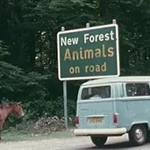
by NFA Media ArchiveOctober 11, 2023
🎬What's New In The Forest. Filmed by members of The Wildlife Society, featuring memorable footage of a working forest, as it was circa 1973.
A brief history to describe the forest, then and now. A look at the various species of deer to be found. The geology. Forest law and the New Forest. Eyeworth Pond, a special place. A look at some of the more unusual Flora. The Forest Lawns and grazing. Common rights. New Forest Pony as a breed. Red Fox on a hillside and beware of Adders in the long grass. Setting up a filming hide on a Bullfinch nest. A pony drift. The Agister's responsibilities. The pressures of traffic filmed and described. Pollution and the proximity of Fawley Refinery. The Forestry Commission management. Timber extraction. Regulation of caravanning and camping. Draining bogs. The pony sales at Beaulieu Road.
Narrated by Tony Askew
Contributors:
Jack Dalley Inkpen, Berkshire
May Dalley Inkpen, Berkshire
Ronald Downham Croydon, Surrey
Angela Hughes Hammoon, Dorset
Violet Maxse West Burton, Sussex
Frances Murphy Hampton, Middlesex
John Murphy Hampton, Middlesex
Peter Nichols Kingston-upon-Thames, Surrey
John Norie Hicliffe, Dorset
David Orr Redgrave, Suffilk
Geoffrey Paulson-Ellis Headley, Hampsire
Jane Paulson-Ellis Headley, Hampsire
John Pitcher Epsom, Surrey
Ricky Pitcher Epsom, Surrey
Jack White ARPS Tifield, Berkshire
Norman Wylie-Moore Heathfield, Sussex
Featured Fauna and Flora:
Adder
Bog Aspendale
Bogbean
Bog Myrtle
Bullfinch
Cattle
Common Frog
Cotton Grass
Damselfly
Donkies
Great Sallow
New Forest Ponies
Orchids
Red Fox
Spierwit
Sundew
Water Crowfoot
Wild Gladiolus
14237 Views
-
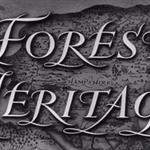
by NFA Media ArchiveOctober 11, 2023
🎬 The New Forest. A film exploring the rich landscape, people and forest traditions in the post war years.
18th century Agisters and pigs with rights to wander are just some of the ancient traditions celebrated in this beguiling look at life in the New Forest. Less familiar sights are captured, too, such as broom making and logging, forestry planting and sailing on the River Beaulieu near Buckler's Hard. No film about the area would be complete, though, without the famous Forest ponies – who are seen here in all their equine glory.
Filmmaker Roy Layzell made many films during this period including other local area films such as Pipelines Under Southampton Water in 1957.
Clifton Parker was a renowned British composer. With nearly 50 feature films under his belt, including The 39 Steps in 1959 and Sink The Bismark in 1960.
John Snagge (OBE) was the voice of the BBC from the war years to his retirement in 1980.
Featuring John Snagge
Music by Clifton Parker
Filmed and Directed by Roy Layzell
Original Cinema Release 1952
The film was commissioned by the Esso Petroleum Company in 1952, just as they were establishing a new refinery on the eastern edge of the New Forest at Fawley, but Forest Heritage is entirely concerned with the natural beauty and traditions of the area: ‘A place out of this modern world where simple pleasures are enough – a miraculous survival of pre-Norman England’.
13206 Views
-
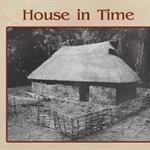
by NFA Media ArchiveOctober 11, 2023
🎬Building a Cob house in a day. Filmed on the Beaulieu Estate by Meridian Broadcasting.
Imagine the year is 1650, a young couple, Jacob and Catherine are about to get married, but have nowhere to live together. Their respective houses are already over-crowded. Up to 10 or more people would live in a Cob house 25 feet long and 13 feet wide.
Hence the practice of erecting a house in a single day by the whole village for the newly-weds. A communal venture. Once the house was completed, the householder would treat their guests to a party of eating, drinking and dancing.
But how was it possible to build a house in a little over sixteen hours, and could it be re-attempted 350 years later? The following is an account of an incredible day and a brilliant group of volunteers who made it all possible.
Our thanks to the staff at Meridian Broadcasting in Northam for their help in sourcing this film.
11819 Views
-
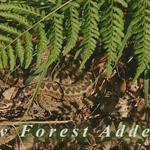
by NFA Media ArchiveNovember 20, 2023
🎬New Forest Adders, Filmed by Manuel Hinge for BBC. Narrated by Bill Oddie. Part of the 2005 'Wildlife Shorts' season.
The New Forest is one of the few places in Britain where you can find all six of the UK's reptile species living together - but the leader of the pack has to be the infamous adder.
This film offers a rare insight into the life of the adder, following them and the other reptiles through a typical season. The male adders emerge early in the year in this stunning setting. They soon shed their dull winter coat, reveal their bright spring colours, and then they are ready to find a mate through one of the most amazing and rarely seen wildlife spectacles...the adders' dance.
Narrated by Bill Oddie
Filmed by Manuel Hinge
Online Editor Michael Chichester
Online Editor Adrian Rigby
Dubbing Editor
Paul Fisher
Dubbing Mixer Adam Palmer
Production Manager Jon Cox
Production Co-ordinator Esther Purcell
Series Producer wendy Drake
Esecutive Producer Fiona Pitcher
Producer Robert Yeoman
BBC Bristol 2005
11784 Views
-
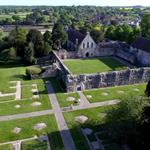
by NFA Media ArchiveNovember 20, 2023
🎬 Part of the AMERICAN VISCOUNTESS series of programmes that looks at Britain's stately homes.
Not only is Beaulieu home to the National Motor Museum, but also to the extraordinary ruins of Beaulieu Abbey, which date back to the foundation of the monastery here in the thirteenth century. The more I visit historic houses around Britain, the more I realise how many of them have monastic roots.
In this episode, Lord Montagu guides me around some of the surviving buildings and shows me the exquisite wall hangings, stitched by his mother, which chart the history of the abbey. I also explore a hidden part of the Beaulieu estate where the well used by the monks still survives today. And I end my visit at the newly restored ice house – a glimpse back to the days when historic houses functioned more like life in the tv series, Downton Abbey.
11390 Views

Processing Video - Please Wait!

Processing Video - Please Wait!

Processing Video - Please Wait!

Processing Video - Please Wait!

Processing Video - Please Wait!

Processing Video - Please Wait!
🎬 Ytene England's Ancient Forest. An NHU Production for BBC2. Filmed over two years by Manuel Hinge and narrated by John Nettles.
'Ytene' is an ancient name for the area now known as the New Forest. It was the site of the Jutish Kingdom and translates as "Jute", or "of the Jutes". An early Anglo Saxon tribe known to live in the southern parts of Wessex.
Ytene explores the wildlife found in the New Forest in southern England. The woodland, bogs and heaths of the area are home to wild ponies, fallow deer, badgers, foxes, wildfowl, and insects. Seasonal changes are shown, and some elusive species, such as firecrests, hawfinches, woodlarks and tadpole shrimps are pictured.
The programme is interwoven with historical re-enactments and describes the change in land use from mediaeval times.
Filmed and Directed by Manuel Hinge
Music by Martin Kiszko
Film Editor Martin Elsbury
Dubbing Editor Angela Groves
Dubbing Mixer Graham Wild
Unit Manager Christina Hamilton
Production Assistant Elizabeth Toogood
Field Assistant Len Mummery
Sound Recordist Nigel Tucker
Produced by Steve Nicholls
Executive Producer John Sparks
Originally broadcast in The Natural World series 1995
This is the version as aired on BBC in 1995.
Our thanks to The Natural History Unit for supplying the original master.
Film upscaled by New Forest Gateway (Media Archive).
🎬What's New In The Forest. Filmed by members of The Wildlife Society, featuring memorable footage of a working forest, as it was circa 1973.
A brief history to describe the forest, then and now. A look at the various species of deer to be found. The geology. Forest law and the New Forest. Eyeworth Pond, a special place. A look at some of the more unusual Flora. The Forest Lawns and grazing. Common rights. New Forest Pony as a breed. Red Fox on a hillside and beware of Adders in the long grass. Setting up a filming hide on a Bullfinch nest. A pony drift. The Agister's responsibilities. The pressures of traffic filmed and described. Pollution and the proximity of Fawley Refinery. The Forestry Commission management. Timber extraction. Regulation of caravanning and camping. Draining bogs. The pony sales at Beaulieu Road.
Narrated by Tony Askew
Contributors:
Jack Dalley Inkpen, Berkshire
May Dalley Inkpen, Berkshire
Ronald Downham Croydon, Surrey
Angela Hughes Hammoon, Dorset
Violet Maxse West Burton, Sussex
Frances Murphy Hampton, Middlesex
John Murphy Hampton, Middlesex
Peter Nichols Kingston-upon-Thames, Surrey
John Norie Hicliffe, Dorset
David Orr Redgrave, Suffilk
Geoffrey Paulson-Ellis Headley, Hampsire
Jane Paulson-Ellis Headley, Hampsire
John Pitcher Epsom, Surrey
Ricky Pitcher Epsom, Surrey
Jack White ARPS Tifield, Berkshire
Norman Wylie-Moore Heathfield, Sussex
Featured Fauna and Flora:
Adder
Bog Aspendale
Bogbean
Bog Myrtle
Bullfinch
Cattle
Common Frog
Cotton Grass
Damselfly
Donkies
Great Sallow
New Forest Ponies
Orchids
Red Fox
Spierwit
Sundew
Water Crowfoot
Wild Gladiolus
🎬 The New Forest. A film exploring the rich landscape, people and forest traditions in the post war years.
18th century Agisters and pigs with rights to wander are just some of the ancient traditions celebrated in this beguiling look at life in the New Forest. Less familiar sights are captured, too, such as broom making and logging, forestry planting and sailing on the River Beaulieu near Buckler's Hard. No film about the area would be complete, though, without the famous Forest ponies – who are seen here in all their equine glory.
Filmmaker Roy Layzell made many films during this period including other local area films such as Pipelines Under Southampton Water in 1957.
Clifton Parker was a renowned British composer. With nearly 50 feature films under his belt, including The 39 Steps in 1959 and Sink The Bismark in 1960.
John Snagge (OBE) was the voice of the BBC from the war years to his retirement in 1980.
Featuring John Snagge
Music by Clifton Parker
Filmed and Directed by Roy Layzell
Original Cinema Release 1952
The film was commissioned by the Esso Petroleum Company in 1952, just as they were establishing a new refinery on the eastern edge of the New Forest at Fawley, but Forest Heritage is entirely concerned with the natural beauty and traditions of the area: ‘A place out of this modern world where simple pleasures are enough – a miraculous survival of pre-Norman England’.
🎬Building a Cob house in a day. Filmed on the Beaulieu Estate by Meridian Broadcasting.
Imagine the year is 1650, a young couple, Jacob and Catherine are about to get married, but have nowhere to live together. Their respective houses are already over-crowded. Up to 10 or more people would live in a Cob house 25 feet long and 13 feet wide.
Hence the practice of erecting a house in a single day by the whole village for the newly-weds. A communal venture. Once the house was completed, the householder would treat their guests to a party of eating, drinking and dancing.
But how was it possible to build a house in a little over sixteen hours, and could it be re-attempted 350 years later? The following is an account of an incredible day and a brilliant group of volunteers who made it all possible.
Our thanks to the staff at Meridian Broadcasting in Northam for their help in sourcing this film.
🎬New Forest Adders, Filmed by Manuel Hinge for BBC. Narrated by Bill Oddie. Part of the 2005 'Wildlife Shorts' season.
The New Forest is one of the few places in Britain where you can find all six of the UK's reptile species living together - but the leader of the pack has to be the infamous adder.
This film offers a rare insight into the life of the adder, following them and the other reptiles through a typical season. The male adders emerge early in the year in this stunning setting. They soon shed their dull winter coat, reveal their bright spring colours, and then they are ready to find a mate through one of the most amazing and rarely seen wildlife spectacles...the adders' dance.
Narrated by Bill Oddie
Filmed by Manuel Hinge
Online Editor Michael Chichester
Online Editor Adrian Rigby
Dubbing Editor
Paul Fisher
Dubbing Mixer Adam Palmer
Production Manager Jon Cox
Production Co-ordinator Esther Purcell
Series Producer wendy Drake
Esecutive Producer Fiona Pitcher
Producer Robert Yeoman
BBC Bristol 2005
🎬 Part of the AMERICAN VISCOUNTESS series of programmes that looks at Britain's stately homes.
Not only is Beaulieu home to the National Motor Museum, but also to the extraordinary ruins of Beaulieu Abbey, which date back to the foundation of the monastery here in the thirteenth century. The more I visit historic houses around Britain, the more I realise how many of them have monastic roots.
In this episode, Lord Montagu guides me around some of the surviving buildings and shows me the exquisite wall hangings, stitched by his mother, which chart the history of the abbey. I also explore a hidden part of the Beaulieu estate where the well used by the monks still survives today. And I end my visit at the newly restored ice house – a glimpse back to the days when historic houses functioned more like life in the tv series, Downton Abbey.